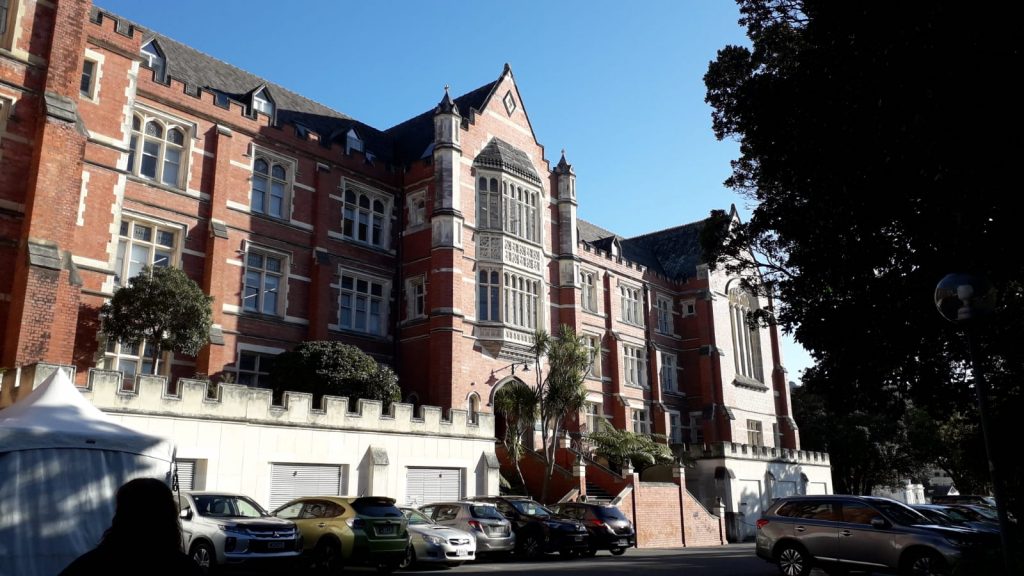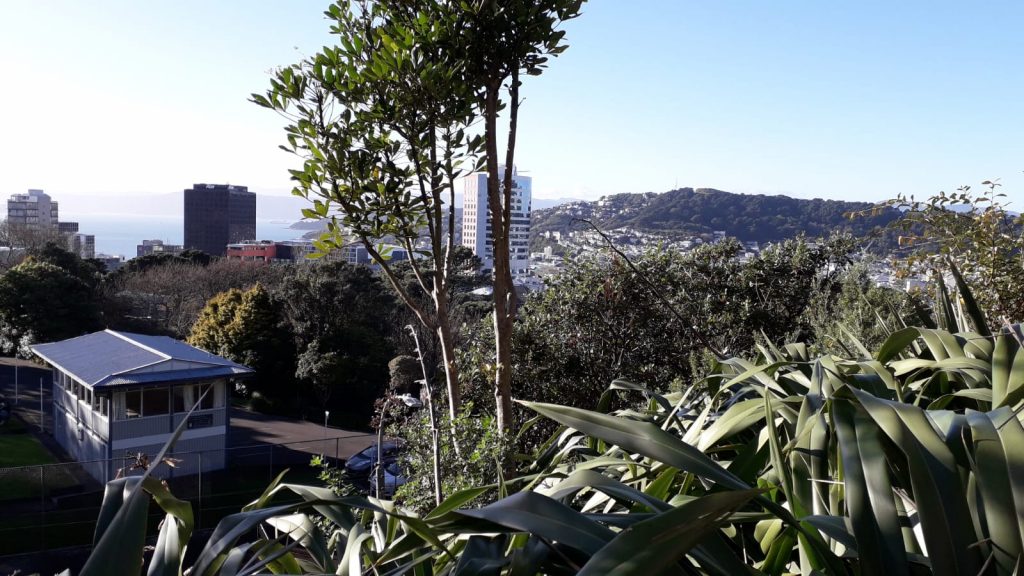
A study abroad year is not ALL about travelling and adventure… But in all honesty I wouldn’t want it to be!
I will be the first to admit that I was profusely worried about starting my university course in New Zealand. This was, in part, a “me problem” in that I have a tendency to over-think and stress about everything, but when you’re starting a new school in a foreign country – and in the middle of their academic year no less, I think I was justified in being at least a little concerned. I had no idea what to expect. Considering the similarities between New Zealand and the UK and the research I did prior to leaving, I did on some level expect the similarities to carry over to the academic space. As I mentioned in a previous post, I therefore specifically selected modules to compensate for my cautiousness, going for familiar topics and modules that I knew I would feel confident writing about. Consequently, having now completed the first part of my final trimester, I am in a position to offer an overview of what my academic experience at the University of Wellington has been like (the good as well as the ‘less good’).
I am an English and History joint-honours student and this is what studying in New Zealand looked like for me…
English
Beginning with the good – because it has genuinely been predominantly great! – the English modules this year have been top quality in almost every way from the content, to the teaching, the classroom discussions, to even the assignments.
I began the year taking two modules of English for what was the University of Wellington’s second trimester. As I have mentioned in a previous blog, these entailed one on Victorian Literature and another on Shakespeare – two areas I felt comfortable working with and writing about. Much like back in Southampton, the courses were taught with a mixture of lectures and seminars (here called tutorials). An interesting observation I quickly made here was that the rooms in each instance different in layout to the classroom of Southampton. At least on Avenue Campus, there are only a handful of traditionally set out lecture halls and have found that most of my lectures took place in the same style of room as the seminars. This isn’t to say one was better than the other, however the layout of the seminar/tutorial rooms did make an interesting comparison. For English, the tutorials provided the same function as the seminars back home, however I found that the room was laid out to better facilitate the group discussions. At Wellington, the tutorial rooms are organised with a circle of chairs and no desks and, while the lack of space to write/type made note-taking awkward, I felt there was more of an interactive report going on. By comparison, the table set up of seminar rooms in Southampton affect a more individual experience.
There were roughly 2 lectures and one tutorial per week and this worked well to build off the information provided by the lectures. In this way, it was very similar to the organisation at Southampton. One of the other major differences, however, was in the assignment schedule. Here, instead of two written assignments across the year, there were four. I found this had benefits and drawbacks, but overall came to really appreciate it. With more assignments with reduced percentage weighting, there is consequently less pressure to perform perfectly for each one as I knew there would be more opportunities to improve in the future. Nevertheless, the increased frequency also meant that, with two other modules on a similar timetable, it was easy to become quickly inundated with assignments all due around the same time. Not only am I a naturally slow/methodical writer, but I have found that this system means it is easy to become overwhelmed by too much to do at once. That being said, I think my time management has improved as a result and I have been able to work on speeding up my writing and utilise my time more efficiently. Moreover, whilst I personally (out of paranoia) try to never miss a lecture or seminar, I can also see the benefits to having a greater number of assignments throughout the year as it increases the importance of attendance. Missing one week can have serious consequences if you are unable to catch up whereas at Southampton, writing off a week or two is possible by deciding not to write on the material for those weeks. Again, this has benefits in that Southampton better allows for personal time off (whether for mental or physical illness or family emergency etc.), however it also means that I found there was a better weekly attendance at Wellington.
My second trimester of English modules (and the ones I am currently in the midst of completing) includes Romantic Literature and Science Fiction and I was particularly excited to complete the latter module! (Perhaps a little biased, I will admit that I found the English modules on offer at Wellington to be more personally interesting compared to the limited selection offered at Southampton…) Like the previous trimester’s modules, the teaching for these modules consists of lectures and tutorials, however there is now the addition of ‘workshops’ which function similarly to the tutorials. In fact, I still struggle to identify the difference between workshop and tutorial as workshops similarly involve discussion about the themes/questions raised by the lectures. Here, however, we are back in the lecture theatre and are divided into smaller groups where we discuss and answer a series of questions before feeding back to the larger group. It actually turns out that this is my favourite mode of learning as I find it more comfortable discussing ideas with a smaller group than with an entire room full of people and it allows people more of a chance to voice their own opinions. The assignments are organised in the same way as the previous trimester, and similarly consist of essays varying from close analysis of 1,000-1,500 words to wider/comparative pieces upwards of 2,000 words (similar to the assignments set at Southampton). There is also the occasional inclusion of timed essays in which, instead of having weeks to plan and prepare an essay, we are given a timeframe of just a few days. These I am less fond of as it reminds me of the exams at GCSE or A-Level and I have never felt that writing under a time limit best demonstrates my abilities. They also have the added consequence of being waaaay more stressful.
Aside from this, however, I have many good things to say about the English teaching at Wellington!
History
The history teaching however…
I would like to start out by saying that the lecturers themselves here at Wellington are amazing – both engaging to listen to and very obviously keenly astute in their area of interest. Nevertheless, the way the history course is structured from what I experienced was greatly lacking compared to Southampton. Not only were there fewer modules to choose from, forcing me to select areas of history I was not particularly interested on (and indeed the timetable meant that I was unable to take the module on New Zealand history), but the way the lectures and seminars were structured were inefficient in delivering information. Like everywhere else, the course was organised into a mixture of lectures and tutorials/seminars, however I found particularly the lectures of both my first and second trimester modules to be too broad. Initially, I assumed this to me my own fault. For my first trimester, I accidentally selected a first year module in American history and this meant that I had to go over the basics of history writing – things I have been doing for two years already. This meant that the tutorials didn’t feel as productive as they could have been. The lectures, whilst extremely engaging to listen to and surprisingly interesting considering I was hesitant about the topic at the beginning, covered such a broad period of history that they were very fast-paced and sometimes difficult to follow. Despite this, I very much enjoyed this module.
I cannot say the same for the second trimester module. Not only was I forced to select a module I had no/little interest in (20th century American history), but I was disappointed to find that the lectures and tutorials are just as confusing as the first-year module from last trimester. This module is not a first-year one, yet it feels as if there too much content to go over and often the focus for each week is not well defined. Similarly, the tutorials are not particularly focused and I feel out of my depth when I came to the assignments wherein I felt I had to entirely teach myself on a topic to then write about it. In terms of assignments, the History course at Wellington diverges from Southampton again in that there is a mixture of essay writing and in-person tests (the latter of which I absolutely loath). Once more, I feel as though I am back at GCSE or A-Level wherein simple factual recall under a time limit feels both stressful and unhelpful for critical thinking or analysis in the real world. There is also a gaping hole where gobbets should be. There has been no teaching/focus on primary source analysis and I feel that this is something that Southampton does very well.
Summary
All in all, my academic experience at Wellington was very informative and, despite my issues with the history course, has been both enjoyable and rewarding. Whilst I feel that my experience in the English course is even better than that of Southampton, I greatly miss the expert History course taught at Southampton. There are pros and cons to the approaches teaching and assignments which are both very familiar and curiously different in each country. However, that just means that my time here was very beneficial and I definitely feel as though I have grown as a student (particularly in my time management and English essay writing!)
I am certain that if you choose to go to the University of Wellington for either a semester or for a year, you will benefit from an amazing academic staff and supportive student body. The improvements you make may not be immediately obvious, but they will definitely manifest in your work!

